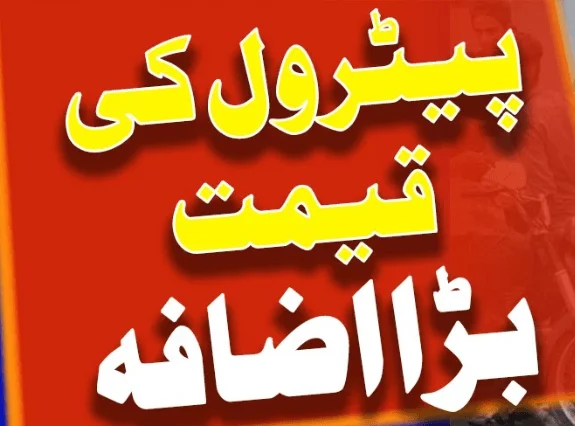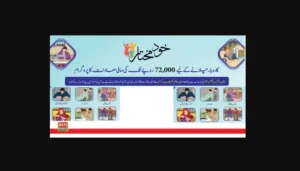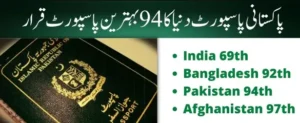Petrol Price Increased by Rs.26.02. The caretaker government announced another massive hike in petrol and diesel prices in Pakistan, taking them to Rs331.38 and Rs329.18 per liter, respectively.
| Product | Existing Prices (September 01-15, 2023) | New Prices (For September 16-30, 2023) | Increase |
| MS (Petrol) | Rs 305.36 | Rs 331.38 | 26.92 |
| High Speed Diesel (HSD) | Rs. 311.84 | Rs. 329.18 | 17.34 |
The petrol price in Pakistan has brought bad news for the public of an increase of Rs26.02 per liter, and high-speed diesel (HSD) by Rs17.34 per liter. The new prices take effect from September 16, 2023.
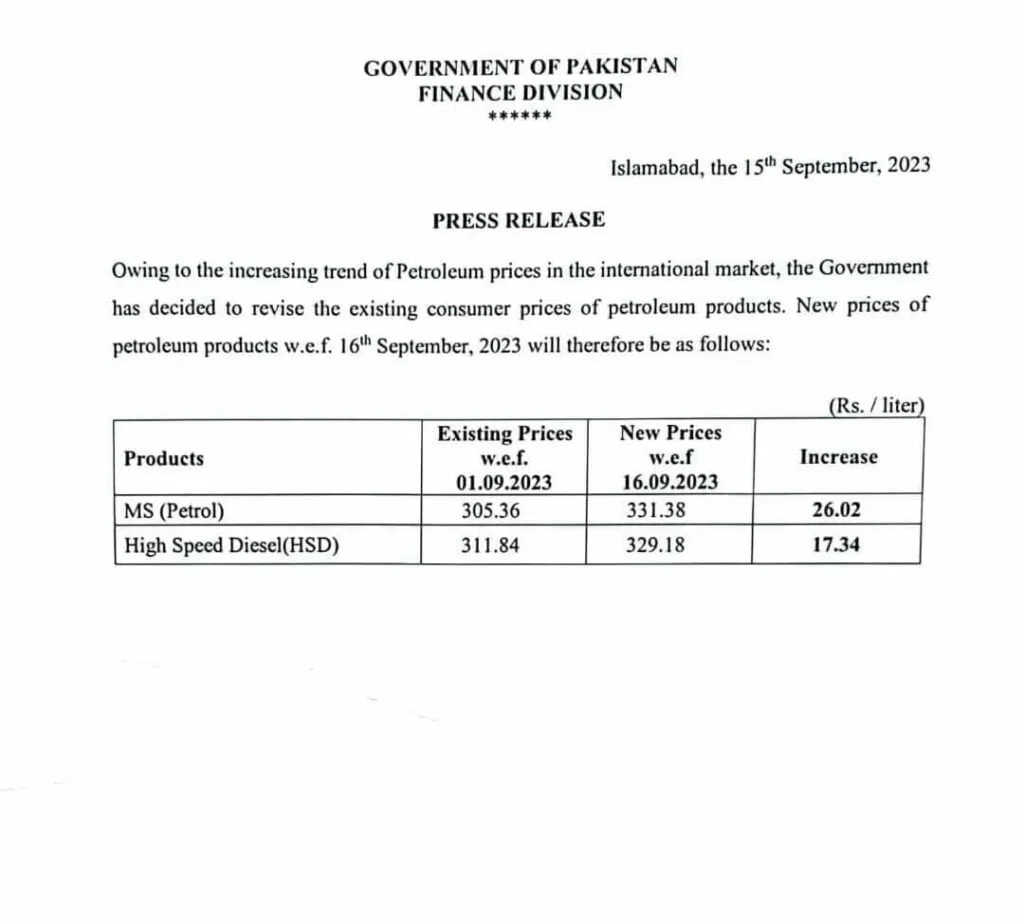
The notification was also Tweeted from the official Twitter account of the Ministry of Finance.
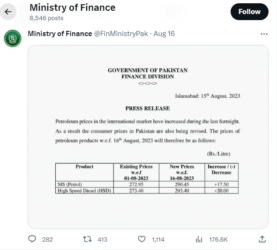
This is the fourth successive increase in prices of petroleum products.
Read More; Petrol Price to Rise up to Rs. 12 per Liter from September 2023
It was reported earlier that the government could raise the ex-depot prices of petroleum products by up to Rs10 per liter. However, this increase is higher than expectations and substantially raises the inflationary outlook that only on Thursday was given a different picture by the State Bank of Pakistan (SBP) when it kept the key policy rate on hold at 22%.
On August 31, the caretaker government increased petrol and HSD prices by Rs17.50 and Rs20, respectively, with effect from September 1, 2023. Now, Petrol Price Increased by Rs.26.02.
Before that, a day after taking charge, Caretaker Prime Minister Anwaar-ul-Haq Kakar had approved an Rs17.50 hike in petrol price and Rs20 in the price of high-speed diesel.
The rupee initially depreciated by Rs4.5 against the dollar in the first 10 days of the current fortnight (from Rs299 to Rs304) before sliding below Rs300, but in the meanwhile, benchmark international Brent prices went beyond $92 per barrel on Wednesday against $88 in the first week of September, thus nullifying whatever little space the exchange rate might have created.
On top of this, the government would also pass on to consumers about 88 paise per liter, the impact of the increase in sale margins for petroleum dealers and marketing companies already approved by the Economic Coordination Committee (ECC) of the cabinet last week.
The sources said the import parity price for petrol, diesel, and kerosene had increased by about Rs13, Rs14, and Rs10 per liter, respectively, since Sept 1, but sale prices were estimated to go up by Rs13, Rs16, and over Rs10 per liter as per product imports by Pakistan State Oil. Jet fuels are also estimated to be costlier by Rs10 per liter.
As such, the petrol and diesel prices are estimated to cross Rs320 and Rs325 per liter, respectively. The kerosene rate would be on the higher side of Rs240 per liter.
Read More: Rs. 13000 Discount on Electricity Bills in Pakistan
Most of the transport sector runs on HSD. Its price is considered highly inflationary as it is mostly used in heavy transport vehicles, trains, and agricultural engines like trucks, buses, tractors, tube wells, and threshers, and particularly adds to the prices of vegetables and other eatables.
Petrol, on the other hand, is mostly used in private transport, small vehicles, rickshaws, and two-wheelers and has a direct bearing on the budget of middle- and lower-middle class.
The increase in prices of petroleum products came on the heels of over 27.4 percent increase in the August rate of inflation that would also have a lag effect on general prices in the country over the coming days and weeks.
At present, GST is zero on all petroleum products, but the government is charging Rs60 per liter petroleum development levy (PDL) on petrol and Rs50 each on HSD and high octane blending components and 95RON petrol. The government is also charging about Rs18 to Rs22 per liter customs duty on petrol and HSD.
Petrol and HSD are the major revenue spinners, with their monthly sales of about 700,000-800,000 tonnes per month compared to just 10,000 tonnes of monthly demand for kerosene.
For more information, please visit Munafa Marketing.

